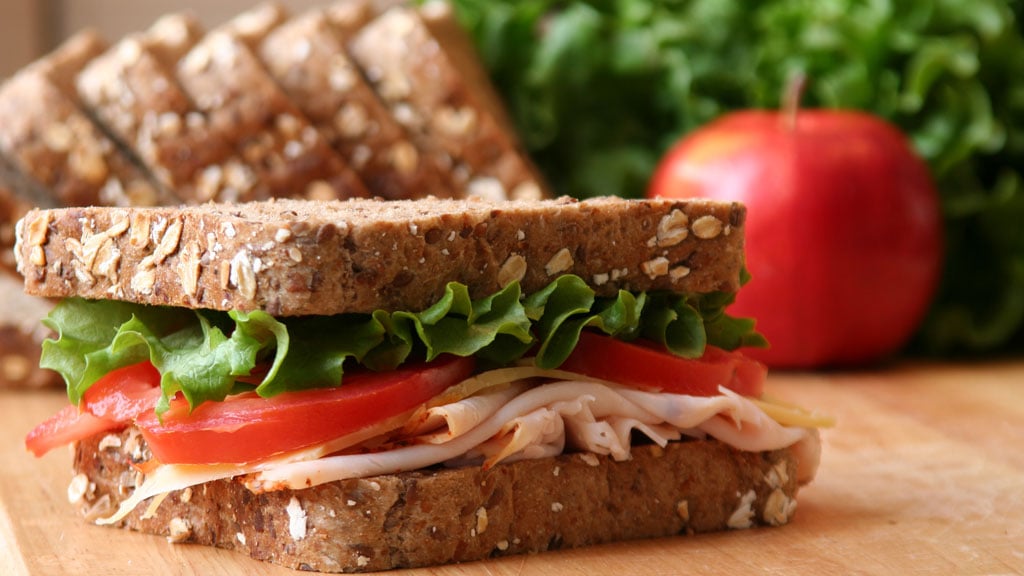Sorry, white bread fans, but you might need to hop on the whole grains train after reading this.
A new study by researchers at Tufts University that was published by The American Journal of Clinical Nutrition compares how eating whole grains compared to refined grains effects can affect weight management for men and postmenopausal women. The study begins by explaining that though it’s generally recommended that people eat more whole grains than refined grains, the link between how eating whole grains helps adults to manage their weight hasn’t been totally clarified. Given that the obesity epidemic is, well, an epidemic, Tufts researchers performed this study to find out if replacing refined grains could help with weight management.
The study involved two groups of 81 men and postmenopausal women. While both groups were fed similar diets intended to maintain each participant’s current weight, one group was fed more whole grains while the comparison group was fed refined grains with less fiber content. After six weeks on these diets, the researchers found that the whole grains group had an increase in their resting metabolic rate (i.e. how much energy your body burns at rest) as well as an increase in stool weight and energy content (i.e. how many calories end up in the toilet). Altogether, researchers found that these differences contributed to the whole grains group losing or burning 92 more calories each day than the group that had eaten refined grains.
While we’ve known for a while that eating whole grains is generally better for you than eating refined grains, this Tufts study provided all the food that the participants ate over the course of the six-week study. This level of control over the study—and the fact that it was a parallel-arm trial—allowed the researchers to more clearly see the difference that the two types of grains can have on your metabolism.
This is pretty great news if you love whole grains—who wouldn’t want to lose about 100 calories a day from switching out their cereals and sandwich breads for whole grain versions? Susan Roberts, a senior author on the study who is the director of the Energy Metabolism Laboratory at Tufts University, says that they incorporated whole grains into the study group’s diets primarily with whole grain bread, whole grain cereals, and brown rice. But one thing to keep in mind before you start filling your grocery cart with “whole grain” products is labels can be misleading. While you may have good intentions in mind, make sure you’re getting real whole grains in your diet by reading the ingredient list, not just the front of the package.
“A good rule of thumb is to look at the ingredient list, not the Nutrition Facts. You are looking for products that don’t have anything like enriched flour, sugar, etc.,” says Roberts. “[You want] just whole grain flour, wheat flakes, brown rice, natural ingredients, not refined and white ones.”




















